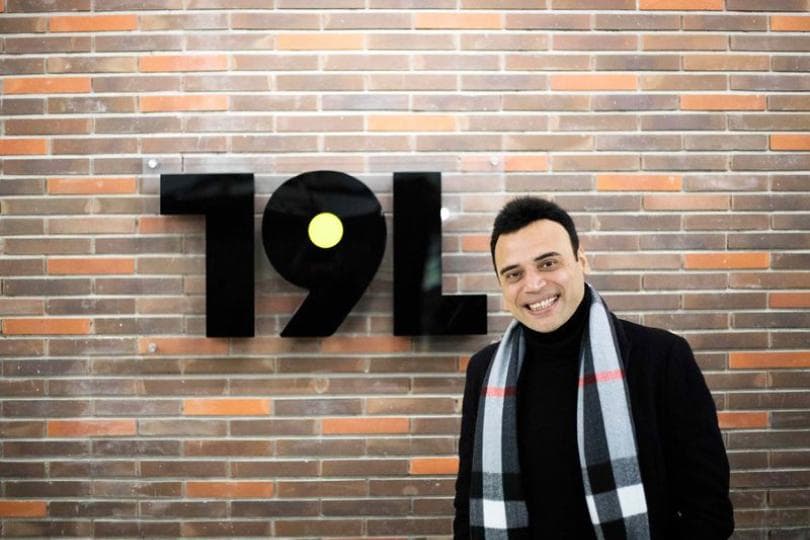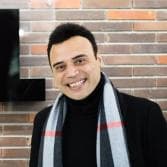The Alchemists of Innovation
How the Y-Combinator of India Challenged the Norms of Startup Failure and Won
Fahad Moti Khan

“Did they have to fail?” - This question led to the conceptualization of T9L, India’s first startup studio.
Grim statistics show: over 90% of startups fail due to poor venture definition, product execution, wrong markets, inadequate team dynamics and funding challenges. These factors routinely stump early-stage founders.
According to Fahad Moti Khan, T9L’s Founder and CEO; “all founders who embark on their startup journeys have two ‘runways’ to deal with. The most obvious, the financial runway, that covers the costs associated with a startup till it’s either revenue generating or has the potential for attracting external capital. The less talked about runway is the mental runway of the founding team and their ability to persevere in the face of the inevitable adversities associated with building a new venture.”
Later stage companies are not immune to failure, but the risk decreases exponentially once the early-stage minefield is navigated. Khan, along with his co-founder, Nitin Awasthi, relaunched their software product company as Startup Studio in 2015 to determine the optimum engagement model with early-stage founders.
“We identified that typically a founder has between 12-18 months of the two runways to make a fundable playbook” says Nitin. “In most cases founders are unable to use this time and resources optimally leading to large scale failure in this stage of startups ”.
In this short time, founders are expected to define their business model, build a product prototype, hire talent, reach out to investors, manage finances, handle legal and operational tasks, and launch the product. Each task presents its own set of mental challenges. It’s not a game for the weak-minded and constantly erodes you as you go along.
Fahad and Nitin were clear that optimization of execution leads to greater chances of survival and success. They identified five distinct areas where early founders were most vulnerable: storytelling, product, team, growth and fundraising. Their hypothesis was that meaningful intervention in these areas would significantly increase the likelihood of startup success.
Ecosystem play is not new to India and did not start with T9L. Inspired by the success of Y-Combinator, Techstars, and other accelerators/incubators globally, India had several ecosystem players helping founders with cash, resources, and knowledge. However, T9L’s founders realised that in an emerging startup ecosystem like India, there needs to be a much deeper engagement with founders which goes beyond cash, office space and gyan. “We call ourselves the third co-founder.” adds Nitin. “A typical engagement starts with streamlining the narrative and goes on to helping founders execute the most optimum product.”
According to Danish Ahmed, CEO, HealthTrip “They are my co-founder in the truest sense. Before deciding what I’ll be doing, I decided I’ll be doing it with them….”
Shashank Bijapur adds ”The studio helped SpotDraft turn a great idea into a viable business. The studio worked closely with co-founders and vetted our ideas and used their proven playbook for flawless execution. It was instrumental in guiding SpotDraft in finding the right product/market fit to leveraging human and financial capital. Our transformation as founders from two people with an idea to ‘co-founders with superpowers’ happened here.”
Product is a much bigger issue. Erroneously, product and technology are routinely used interchangeably. Khan says “Technology is a small subset of the overall product and most founders struggle with that differentiation till it’s too late in the process. Product creation is our strongest skill and we’ve seldom created a product that did not work.”
India is a technology powerhouse, but its product talent pool is limited, leading to great ideas perishing without an acceptable product to support them.
According to Pallav Pandey “A brilliant team that has a 360 degree understanding of business, design and technology. They spent time understanding our vision and researching the customer demographic before giving us cutting-edge and usable solutions. It’s one team that goes beyond the scope of work and actually invests time to build and nurture the product.”
The structure helps with other business aspects as well. Talented individuals are more likely to join a venture backed by an ecosystem due to the safety net in the event of failure. For funds, this becomes a great source of qualified deals with a proven track record, giving founders a wide array of investors. Nitin adds, “It’s akin to wearing an Iron Man suit enabling them to punch above their weight.”
Tejasvi Mohanram, CEO, RupeePower “Very rarely does one come across a team of people who have such innate expertise, care and attention for digital products. I have seen them work closely with entrepreneurs and become part of the mission..”
Mental runway is trickier to manage and founders’ resolve needs constant validation.
According to Indranil Roychoudhary, CEO, Docquity “We came in with the experience of the market and with the studio’s expertise on the product side, we were able to launch a product which we could then scale across multiple countries. The biggest strength that the studio has, is their vast experience of having developed products and we could leverage that blend of ideas.”
This studio experiment yielded excellent results for T9L and its stakeholders. In an industry where accepted portfolio success is a mere 10%, T9L’s success rate sits at over 50%. With over a dozen marquee startups, two engaged in Unicorn rounds, their cumulative valuation exceeds a billion dollars at present and is expected to grow exponentially this year. Docquity, SpotDraft, Uolo, NirogStreet, ShipsKart, HealthTrip, Tota, PumPumPum, Brox/Fastfox, CrownIt, PeopleMatters, and RupeePower headline nearly 50 startups they’ve worked with.
One or more of T9L’s startups sit as top performers on several funds today. Among them are two Japanese funds, Spiral Ventures and MyNavi, who partnered with T9L to enter India and are now established players with high double-digit multiples on their investments.
“The success rate would improve going forward,” says Khan. “We’ve learnt valuable lessons in startup selection and executions along the way. Engaging with a good founder is 90% of the battle won.”
According to Professor Viney Sawhney, who teaches Finance and Venture Capital at Harvard University, “Fahad has an impressive infrastructure in place to ensure artful execution of the incubator business model set up along the lines of Y Combinator (the largest startup accelerator in the world) leveraging his past association with multiple startup ventures overtime...”
T9L QUBE - The Next Phase
The founders, now with the addition of Gaurav Gaggar (ex. Adda52, BIS Research, Credihealth), have embarked on their next studio, T9L QUBE, in partnership with IndiaTech, one of India’s largest industry bodies for technology startups. Together, they plan to incubate 25 startups over two years, focusing on startups rooted in the local context and working across ESG, deep tech, health tech, edutech, SaaS, and D2C ventures. Launched in March 2024, T9L QUBE is actively engaged in identifying and onboarding new startups.
T9L Qube's strategic initiatives align with India's broader economic ambitions. The studio’s focus on nurturing high-potential startups and guiding them to successful exits is expected to play a critical role in India’s transition to a developed economy by 2047. By supporting innovative businesses, T9L contributes to job creation, innovation, and sustainable economic growth.
